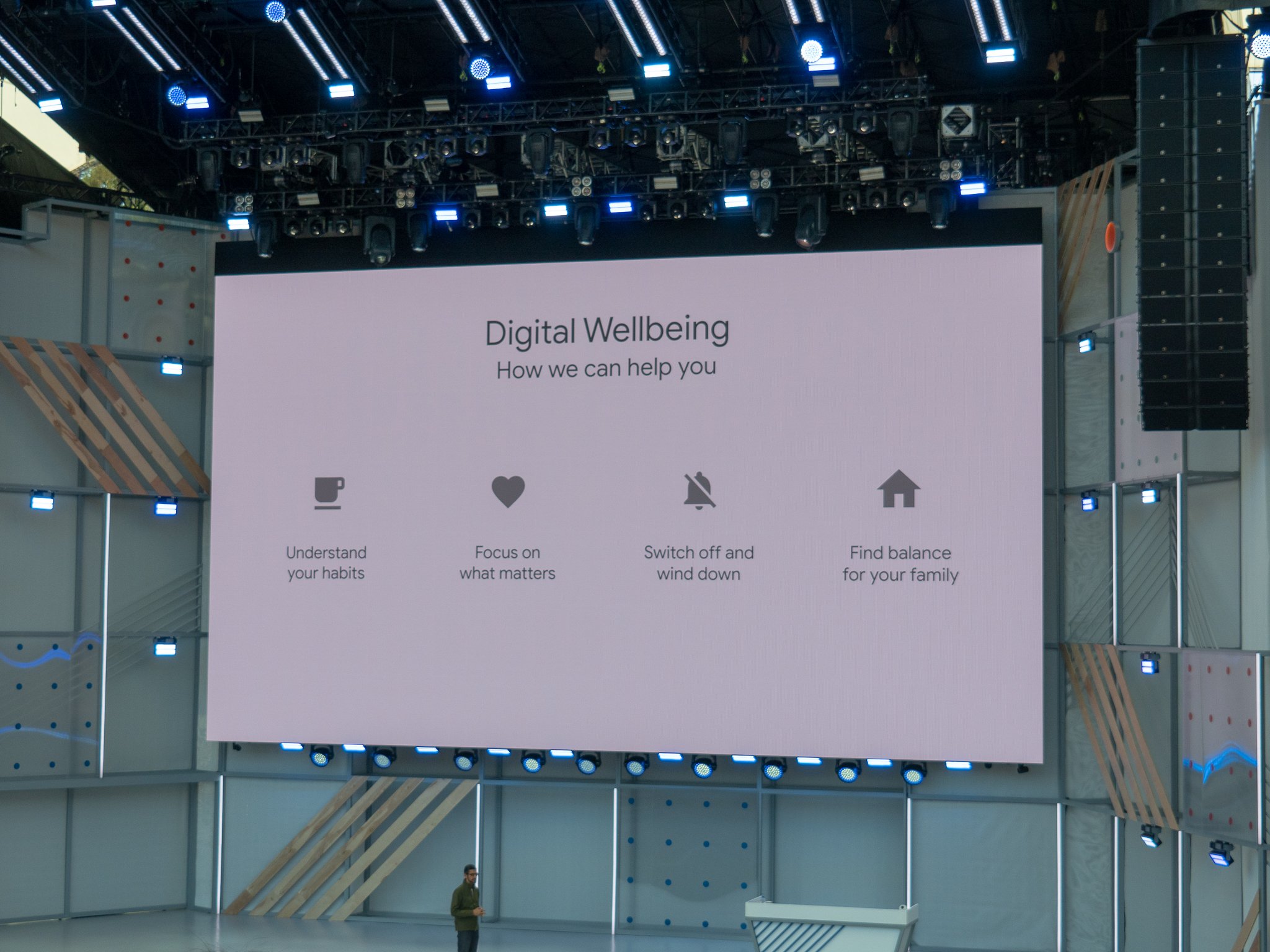This is a great idea that runs completely counterintuitively to every other goal the company has.
We should all strive to use our phone a bit less. Or at least be mindful of the fact that phones have become both an integral and dominating force of our lives. Google, with its billion-plus Android users around the world, realizes that it has a significant role to play in this phenomenon. And it wants to use that force for good.
One of the offbeat and unexpected themes of Google I/O 2018 was the announcement of a new company initiative called "digital wellbeing" — the idea that by quantifying and informing people of how long they're spending with technology, they can potentially reduce the problems caused by heavy use. A substantial portion of the lead keynote was devoted to new features in Android P that help you limit your addiction (my word, not theirs) to your phone — ways to reduce notifications, stop unnecessary interactions, limit visual disturbances and make it easier to get information you need in a shorter amount of time.
The best example of this is the "Dashboard," which actually quantifies exactly how much time you spend in each app, how many times you unlock your phone and how many notifications you receive. And curiously, Google announced that the Dashboard will let you set limits on specific apps — after a limit is reached, the app icon is greyed out and you're given a reminder that you asked it to not let you use the app. YouTube also received a new feature that reminds you how long you've watched videos for and that perhaps you'd like to take a break.
Focusing on 'digital wellbeing' contradicts Google's financial goals as a company.
This isn't an entirely new idea for Google. Many of its products are designed to get us away from the paradigm of staring at our phones and instead use Google's advanced technologies to do heavy lifting for us with less interaction. Google Home and Google Assistant help you with voice controls and predictive actions; Google Clips, although flawed, has the sole mission of getting you to put your phone down to enjoy moments; Google Photos is arguably the company's best service right now because it automatically handles every part of managing photos. Every Google commercial shows people loving life and seamlessly using Google services to do it, not being inseparably attached to their phones.
The problem with this whole initiative, though, is that it runs completely counterintuitively to every other goal Google has as a company.
Google is an advertising company. It makes products and services that, either directly or indirectly, are designed to get you to look at advertisements. If you're not spending time using Google's products, Google isn't making any money. It has built a business that is substantially reliant on converting users' time into dollars, not selling goods or charging subscription fees.
What's new in Android P at Google I/O 2018
Aside from the talk of digital wellbeing, the rest of the opening keynote at Google I/O focused on feature improvements to its biggest and most profitable products. Google Assistant, Gmail, Android P, Google Maps, Google News, Smart Displays ... each one received new features that demand more of your attention, because that's what Google has to do to keep growing.
Looking beyond Google's motives for getting you to look at its own products, there's another angle at play here: third-party app and service companies that use Google's platforms. Google I/O is a developer conference after all, and its sole goal is to help developers better integrate with Google's platforms and services to increase customer engagement as well. Every single session at the conference was there to help developers improve their tactics for gaining or retaining users to make money. Whether that's by increasing app performance, changing distribution, streamlining processes or expanding to new platforms, it's all about getting people to use these apps more.
Like so many of Google's wide-reaching initiatives, I feel "digital wellbeing" is rooted in a good place. As a massive company with billions of users, Google sees first-hand how its products lead to dramatic changes in the lives of people — both for good and for bad. And it wants the former to far outweigh the latter. But when its entire business model is completely at odds with the idea of using technology less, it's hard to take it as being sincere.
We need to use our phones less. But the initiative to do so lies within ourselves, not in waiting for Google's help.
from Android Central - Android Forums, News, Reviews, Help and Android Wallpapers https://ift.tt/2rBOGyJ




No comments:
Post a Comment